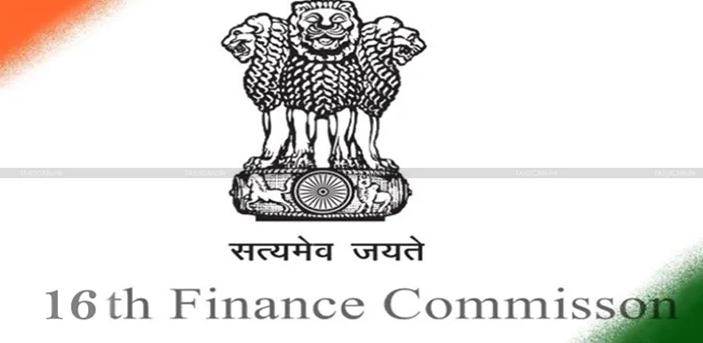Issue of Urban Finance and the 16th Finance Commission (GS Paper 3, Economy)

Introduction
- Urban finance is a critical issue facing India's urban local bodies (ULBs), affecting their ability to provide essential services and maintain infrastructure.
- The recent discussions around the 16th Finance Commission (FC) underscore the need for fiscal decentralisation to ensure financial sustainability in urban areas.
Financial Sustainability Issues in Urban Areas
Urbanisation Challenges:
- India’s urban areas, which contribute 66% of the nation’s GDP and about 90% of total government revenues, face significant infrastructure and financial challenges.
- Despite their economic importance, cities receive inadequate fiscal support, with intergovernmental transfers (IGTs) constituting only 0.5% of GDP, limiting their capacity to deliver essential services.
Financial Devolution Issues:
- The devolution of funds to ULBs is significantly lower than in other developing nations.
- For instance, South Africa allocates 2.6% of GDP to cities, Mexico 1.6%, the Philippines 2.5%, and Brazil 5.1%.
- This shortfall affects urban productivity and quality of life, exacerbated by the Goods and Services Tax (GST) reducing ULBs' own tax revenues.
Draining Resources:
- An RBI survey (2020-21) of 221 municipal corporations revealed that over 70% saw a decline in revenues, while their expenditure rose by 71.2%.
- The limited coverage of property tax contributes to low municipal revenues, with India having the world's lowest property tax to GDP ratio according to the OECD.
Decline in Grants:
- The introduction of GST eliminated octroi, significantly reducing revenue for ULBs, which previously covered about 55% of urban centres’ total revenue expenditure.
Other Issues:
- Census Data Concerns: The absence of updated census data since 2011 hampers accurate assessment of urban populations and their needs, affecting fiscal planning.
- Policy Distortions: Parallel agencies and schemes, such as MP/MLA Local Area Development Funds, undermine the financial autonomy of local governments.
- Lesser Functional Autonomy: During the pandemic, municipal leaders were often excluded from disaster mitigation strategies, reflecting an outdated approach that treats local governments as adjuncts of state governments.
- Structural Issues: Many urban local governments lack basic infrastructure and human resources, and some states do not conduct regular elections for local bodies, affecting their functioning and service delivery.
Major Terms of Reference for the 16th Finance Commission
About:
- Established under Article 280 of the Indian Constitution, the Finance Commission recommends the distribution of financial resources between the central and state governments.
- The 15th Finance Commission's recommendations are valid up to the financial year 2025-26.
Terms of Reference:
- Division of Tax Proceeds: Recommending the distribution of taxes between the Union Government and the States.
- Principles for Grants-in-Aid: Establishing principles for grants-in-aid to the States from the Consolidated Fund of India.
- Enhancing State Funds for Local Bodies: Identifying measures to enhance state resources for Panchayats and Municipalities.
- Evaluation of Disaster Management Financing: Reviewing current financing structures related to Disaster Management and making recommendations.
Steps Needed for Better Urban Finance
Strengthening Municipal Revenue:
- The Finance Commissions have highlighted the need to augment property tax revenue.
- For example, the 12th Finance Commission encouraged the use of GIS and digitisation, and the 14th Finance Commission recommended enabling municipalities to levy vacant land tax.
Modernise Tax Administration:
- Implementing digital platforms for property tax assessment, e-filing, and online payments can improve transparency and collection rates.
Explore User Charges for Specific Services:
- Implementing fair user charges for services such as parking, waste collection, or recreation facilities can generate revenue.
- Bengaluru has successfully implemented user charges for solid waste management.
Strategic Property Management:
- Monetising underutilised properties through public-private partnerships (PPP) can generate rental income and stimulate local economic activity.
Promote Local Businesses and Economic Development:
- Supporting local businesses through streamlined licensing, tax breaks for startups, or creating innovation hubs can boost local economies and tax revenues.
Explore Social Stock Exchange (SSE):
- Partnering with or creating an SSE can attract investment for social initiatives, addressing local needs while generating revenue.
Implement Value Capture Mechanisms:
- Capturing a portion of increased property values resulting from public infrastructure projects can fund further development.
- Hong Kong effectively uses land value capture for such projects.
Conclusion
- The ongoing work of the 16th Finance Commission is pivotal in addressing urban finance challenges by revisiting fiscal devolution principles, updating methodologies based on current urbanisation dynamics, and recommending substantial increases in IGTs to urban areas.
- Effective implementation will require coordinated efforts from Union and State governments to align policies and ensure sustainable urban development, impacting India’s economic growth, social equity, and environmental sustainability.


